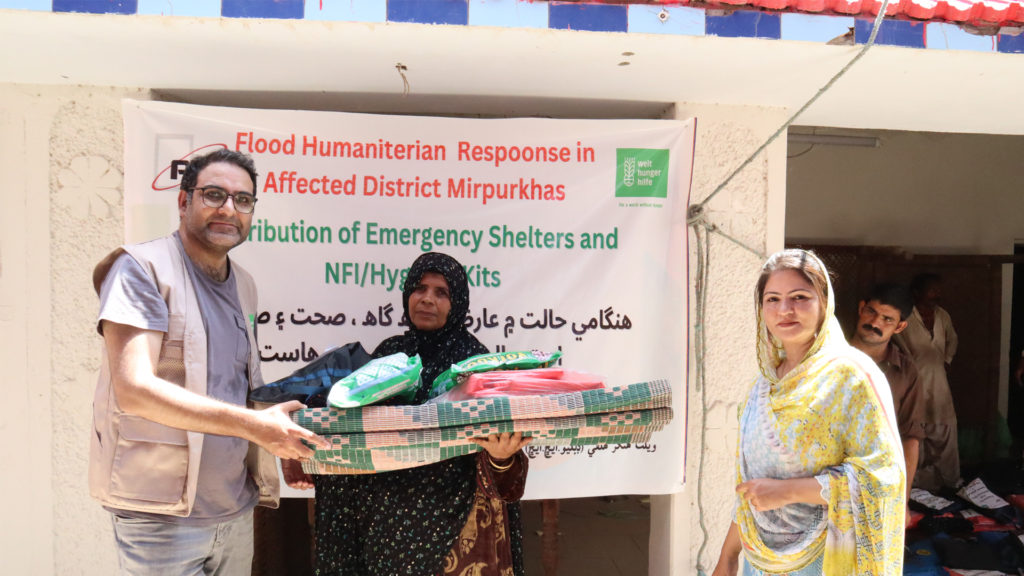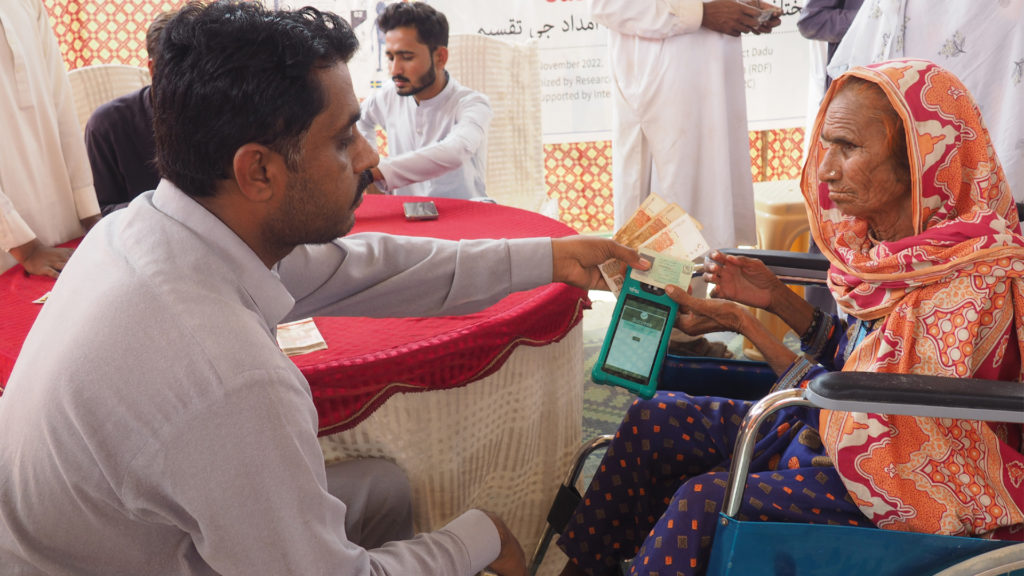Embedding accountability: New CHS Alliance member Research and Development Foundation’s flood response in Pakistan
We hear from new member Research and Development Foundation (RDF) on their important work responding to the 2022 Pakistan floods, why they chose to join CHS Alliance and how this will strengthen their efforts.
What has RDF been working on?
In June 2022, Pakistan faced devastating monsoon rains, resulting in extensive damage to lives, livelihoods, and infrastructure. Flash floods and landslides also occurred, exacerbated by climate change.
RDF swiftly responded, assisting 268,339 individuals with vital support like food security, shelter, water, sanitation, health, livelihood, and protection.

Women from the flood affected area of district Mirpurkhas receiving emergency shelters and Hygiene Kits. Credit: Altaf Jamali.
How have you applied the CHS to your work in the Pakistan floods?
During the floods, RDF prioritised accountability to communities affected by the flooding. We held community meetings to identify needs and gather feedback on our response plans. Additionally, RDF worked with community self-help groups to make sure we reached everyone in need. We asked local associations who were part of the ‘Sustainable Empowerment of Women’ project and already familiar with the community’s needs and challenges who we should help.
We also set up channels for receiving community feedback from the very start of the response, committing to address any concerns promptly and openly. We have public signs about ways to raise concerns or give feedback at both the project office and RDF headquarters to encourage community objections, suggestions or and complaints about staff. The people we support can submit feedback, in person, by phone, or by email.
RDF’s commitment to the CHS meant that we took strong measures to protect affected people and our own staff from any form of exploitation, abuse, or harassment. All staff must sign a code that prohibits unacceptable conduct. HR conducts training and awareness sessions on our policies and procedures emphasising our code and expected behaviours. We display public notices in our offices to make sure staff keep these obligations in mind as they work. We also have a HR and gender committee to oversee when the code is broken, with a committee focal point in each office.
To mitigate discrimination and abuse risks, RDF also established safe spaces in various districts. These catered to vulnerable groups such as children, women, older people, and those with disabilities or chronic health conditions, and provided affected people with psychosocial assistance.

RDF’s flood response work in Pakistan. Credit: Altaf Jamali.
Why did you join CHS Alliance and what difference will it make to RDF?
We joined CHS Alliance because we share the vision and mission of enhancing the quality and accountability of humanitarian and development aid. Being part of this network allows us to expand RDF commitment to CHS standards and gain access to valuable resources and learning opportunities.. Being part of this network will strengthen our ability to respond efficiently and effectively to future floods and emergencies, so we can better assist the people we serve.
What is your message to other organisations?
RDF urges other organisations in Pakistan to embrace CHS Commitments, integrating them into their humanitarian and development work. By joining the CHS Alliance they can access essential tools and guidance to meet the right standard of quality, accountability, and responsiveness to affected people. We urge them to work together with us to enhance the quality and accountability of humanitarian and development assistance across Pakistan.
Find out more about becoming a CHS Alliance member.

